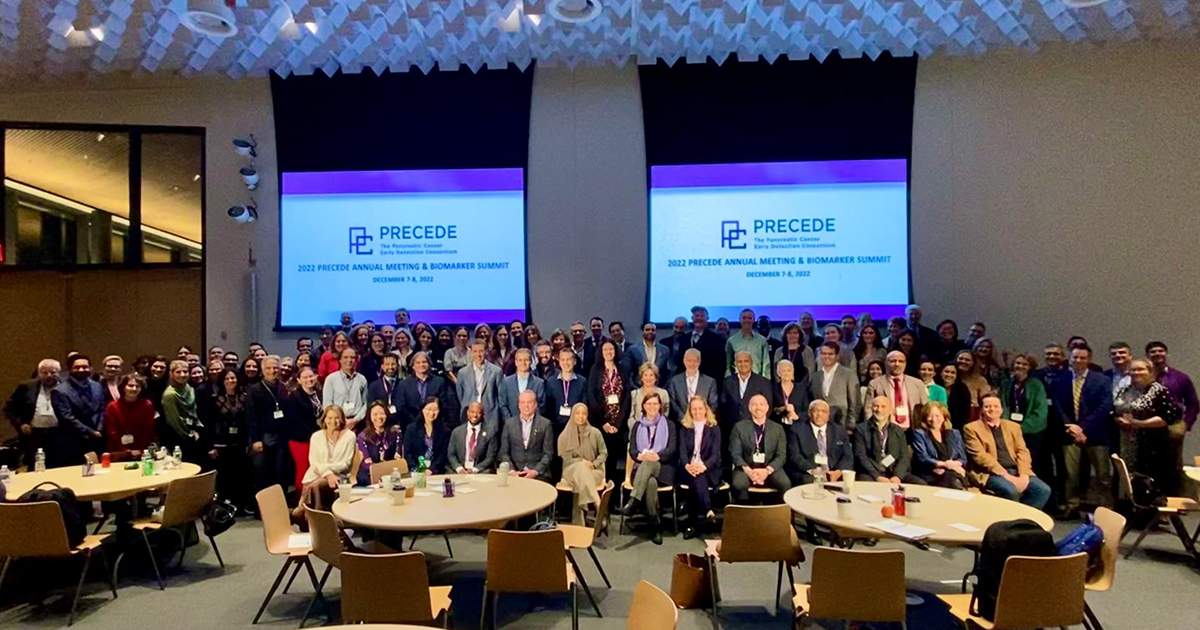Dr. Timothy Donahue, Director of the UCLA Agi Hirshberg Center for Pancreatic Diseases and Garry Shandling Chair in Pancreatic Surgery at David Geffen School of Medicine at UCLA, has joined the Pancreatic Cancer Early Detection (PRECEDE) Consortium as a Principal Investigator. This Consortium brings together an international, multi-institutional collaborative group of experts with the aim to increase the 5-year survival rate from 10% to 50% in the next 10 years. With Dr. Donahue as a Principal Investigator, UCLA patients with a family history of pancreatic cancer or individuals who carry pathogenic genes will be able to enroll in the PRECEDE study for longitudinal follow up.
The PRECEDE Study is an observational long-term study of people with an increased risk for pancreatic cancer due to family history, a history of chronic pancreatitis or pancreatic cysts, or the presence of specific gene mutations linked to the disease. Study participants have blood work every 6 to 12 months with additional imaging collected for those in defined high-risk groups. This data-driven model integrates basic, translational and clinical research to greatly enhance our understanding of this disease and to drive early detection and prevention methods. The consortium aims to identify high-risk individuals, create an effective early detection test for pancreatic cancer, understand the risk factors, including susceptible genes, and develop a strategic pancreatic cancer prevention plan. As Dr. Donahue told us, “It is critical for high-risk individuals to join this important study in order to maximize identification and advance early detection of pancreatic cancer. Early detection would drastically change the trajectory of the disease and ultimately save thousands of lives.”
The Agi Hirshberg Center for Pancreatic Diseases and UCLA’s involvement in this study will expand the population of high-risk individuals involved and allow family members of patients to participate in deepening our knowledge of pancreatic cancer risk factors. We are hopeful that this collaborative, multi-institution project will make early detection and prevention for pancreatic cancer accessible for all so that we may see a marked increase in survival rates.


